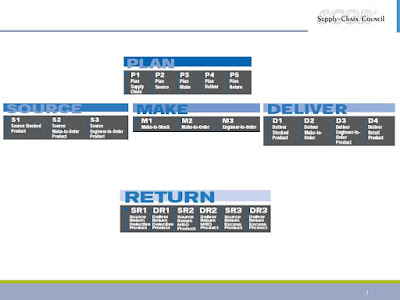Everything old is new again: The 7 Principles of Supply Chain Management
I get a lot of emails every day with tons of content. My job is to surf these topics and find the pearls of wisdom worth writing about and sharing. Today, I fell upon this article courtesy of Supply Chain 24/7. The material concepts are so relevant that at first I thought it had been published recently. Reading through, it turns out this was published over 20 years ago. To me, that means that we, as supply chain professionals, still have a ways to go in instilling these concepts into daily practice at the organizations where we work.
You should be able to read the summary with no problems but you may need an account to download the full article. Click the highlighted text below.
The 7 Principles of Supply Chain Management
Principle 1: Segment customers
based on the service needs of distinct groups and adapt the supply chain to
serve these segments profitably.
Principle 2: Customize the
logistics network to the service requirements and profitability of customer
segments.
Principle 3: Listen to market
signals and align demand planning accordingly across the supply chain, ensuring
consistent forecasts and optimal resource allocation
Principle 4: Differentiate
product closer to the customer and speed conversion across the supply chain
Principle 5: Manage sources of
supply strategically to reduce the total cost of owning materials and services
Principle 6: Develop a supply
chain-wide technology strategy that supports multiple levels of decision making
and gives a clear view of the flow of products, services, and information
Principle 7: Adopt
channel-spanning performance measures to gauge collective success in reaching
the end-user effectively and efficiently
___________________________________________
About FarStar: FarStar is boutique consulting firm with a focus supply chain transformation, of which a key lever is Sales & Operations Planning. With team members located in Canada and the US, the company has extensive experience across a wide range of industries including aerospace, defence, high-tech/electronics, and industrial products in a variety of business environments, ranging from make-to-stock to engineer-to-order.
___________________________________________
About FarStar: FarStar is boutique consulting firm with a focus supply chain transformation, of which a key lever is Sales & Operations Planning. With team members located in Canada and the US, the company has extensive experience across a wide range of industries including aerospace, defence, high-tech/electronics, and industrial products in a variety of business environments, ranging from make-to-stock to engineer-to-order.




Comments
Post a Comment